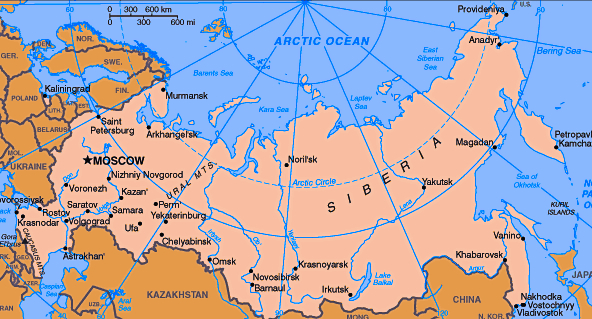The farmers who were to have resided in north east Estonia identified themselves as Mr. Andres Tamm and Mrs. Aine Saar and stated, amongst other accusations, that Estonia is run by fascists and follow only the dictates of NATO . The Estonian national security police press release noted in a serious tone that there was no need for panic, that the situation was under investigation.
Even those readers with a scintilla of common sense and at least the wherewithal to be able to tie their own shoelaces would immediately recognize the Novosti report as either a clumsy attempt at an April-foolish joke or the infantile creation of an idiot propagandist. The St. Petersburg communists' website had a picture of an Estonian slogan on a sign with ‘soviet' misspelled.
Other propaganda projects have not been as childish, risible and thus as easily dismissed. But they have been quite extreme in their message. Earlier this spring a video was prepared for Ostankino TV in Russia which told viewers that Estonia was preparing to attack Russia. Military and other arrangements were being made in Estonia which were similar to Georgia's preparations before the latter “attacked” Russia. References were made to Defence Minister Mart Laar's intentions to increase the defence budget and to Estonia's need for more land. Estonia's neighbouring Leningrad oblast would be the likely target for expansion In addition Estonia is forcing everyone to learn the Estonian language and Russia must defend its citizenry.
More sober and carrying credible arguments for many viewers are three films produced in the last five years. “Balticum – lessons left unlearned” is a film which justifies crimes against humanity by the Soviets. Observers comment that it is easy to package quite a believable story by selectively using the myriad of historical facts to support a particular narrative while omitting other crucial facts in the process. “Balticum” is a clever creation, a story as perceived by a young Latvian girl, that totally negates the fact of occupation. An advisor on this production was the known FSB (successor to the KGB) press counsel Aleksandr Zdanovitš.
The Estonian Security Police says that since August Kolgi and Pjotr Kistõi, convicted in Estonia for participating in deportations, lost their appeals at the European Human Rights Court in 2006, Russia no longer has quasi-legal arguments for denying the Soviet occupation of the Baltic states. Thus they have started to use emotional arguments to justify crimes against humanity and the occupation.
Slightly before the filming of “Balticum”, “They swore allegiance to Hitler” and “Estonia – at history's crossroads” were produced. Observers feel that all of these films are basically the same as those produced during the repressive era of Breshnev. The exception being that the secret protocol of the Molotov-Hitler Pact of 1939 and the deportations are no longer denied. The blatant use of falsehoods and half-truths is so thorough that refuting the unacceptable details is a massive undertaking.
In 2010 the Russia ambassador to Estonia Juri Merzjakov proposed the formation of a joint commission of historians to discuss those aspects of history over which Russian and Estonia have had radical divergent interpretations. Merzjakov mentioned the existence of a similar Polish-Russian commission formed in 2002, which no longer finds it necessary to discuss controversial issues like the Katyn forest killings by the NKVD. But he didn't mention that the change in topics wasn't due to finding mutually accepted views to vexing themes. The tough issues were no longer discussed. When Russian authorities started to allow access to some previously inaccessible Katyn documents the Russian secretary of the commission Artjom Malgin insisted that the need for such a group has quietly diminished. It would be much preferable to concentrate on topics such as the European Union etc. If Polish-Russian relations were to improve in the future than it might be feasible to return to topics that have been a thorn in the two countries' relations.
This past summer, after the current defence minister Urmas Reinsalu went to greet the annual get-together of Estonian war veterans who had fought in WWII on the German side the Estonian Anti-Fascist Committee protested: “…Reinsalu again, speaking on behalf of the Estonian state, demonstrated to the whole world that Nazi ideology can be justified and those who followed Hitler's orders can become national heroes.” It was inevitable that the Committee, who take their cue directly from Moscow, refuse to acknowledge that for the veterans fascism and communism are equally abhorrent. The veterans had no other choice than to be drafted by the Germans and to fight another totalitarian regime who had proved their brutality against Estonians a few years earlier during the first Soviet occupation.
The above is a cross-section of very different types of attempts at influencing opinions allegiances in and about Estonia. Be they plainly ridiculous, naïve or seemingly plausible, influence operations have been defined as distributing black public relations releases, inserting press articles, sponsoring NGO and activist groups for the purpose of molding attitudes, opinions and eventually decisions. More often than not the content of the Kremlin's propaganda message is rejected outright. But it has been said that Moscow's budget for foreign propaganda outstrips Russia's assistance fund for the unemployed. The shear intensity and volume of the propaganda barrage might leave an imprint even if only subliminally.
Laas Leivat




